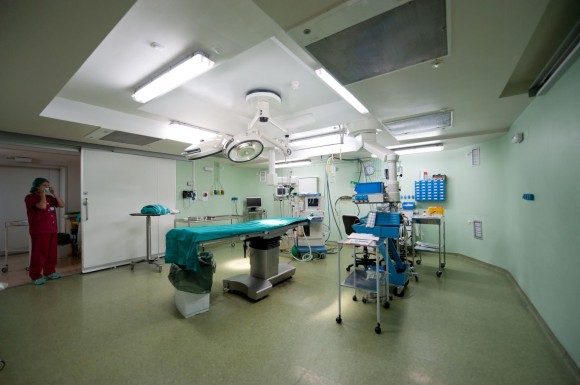Hip and knee replacements, two of the fastest-growing U.S. medical procedures, are subject to huge – and apparently random – price variations within the same geographical areas, a new insurance industry study said this week.
The study by Blue Cross Blue Shield health insurers adds to the evidence of massive disparities between what different hospitals and medical practices charge in the world’s most expensive healthcare system.
It examined claims in 64 healthcare markets over three years and found the biggest price swings for hip surgery in Massachusetts, where the same type of care varied by more than 313 percent, from a low of $17,910 to a high of $73,987.
The biggest gaps in total knee replacement surgery appeared in Dallas, Texas, where prices varied 267 percent from $16,772 to $61,584, according to researchers.
Nationwide, typical knee and hip replacements cost an average of just over $30,000, the study found. Both procedures ranged as low as $11,300 in Alabama. But while the price of knee replacements soared to more than $69,000 in New York City, hip surgery climbed even further, to nearly $74,000, in Boston.
The study, which looked at claims for more than 53,000 procedures from 2010 to 2013, underscores the inconsistencies in medical pricing at a time when employers are increasingly shifting healthcare costs to workers through high-deductible insurance plans.
Researchers described the variations as “seemingly random” and said the data demonstrated the need for transparent pricing in medicine.
“Extreme price variation in healthcare can have obvious financial consequences for individuals and employers,” the study’s authors said. “And from a macroeconomic perspective, it can have serious implications for the sustainability of (the) U.S. healthcare system.”
Researchers also noted that a lack of price variation can penalize consumers in markets where prices are consistently high, such as Fort Collins, Colorado, where knee replacements exceeded the national average by nearly $25,000 but varied locally by less than 1 percent.
Data contained in the study reflects money that insurers and patients paid to hospitals, doctors, labs, physical therapists and others involved in procedures that are expected to increase as the U.S. population continues to age.
The study cited independent research estimating that knee replacements tripled and hip replacements doubled between 1993 and 2009. General spending on healthcare is expected to grow 5.7 percent annually over the next decade as health coverage expands under the Affordable Care Act, according to government forecasters.
(Editing by Matthew Lewis)
Related:
- Hospital Charges Vary Widely, Even Within Cities: U.S. Data
- Outpatient Costs Higher in States Without Fee Schedules: Workers’ Comp Study
Topics USA
Was this article valuable?
Here are more articles you may enjoy.



 AIG’s Zaffino: Outcomes From AI Use Went From ‘Aspirational’ to ‘Beyond Expectations’
AIG’s Zaffino: Outcomes From AI Use Went From ‘Aspirational’ to ‘Beyond Expectations’  World’s Growing Civil Unrest Has an Insurance Sting
World’s Growing Civil Unrest Has an Insurance Sting  Palantir Decamps to Miami Co-Working Space in Surprise Move
Palantir Decamps to Miami Co-Working Space in Surprise Move  Insurance Broker Stocks Sink as AI App Sparks Disruption Fears
Insurance Broker Stocks Sink as AI App Sparks Disruption Fears 

